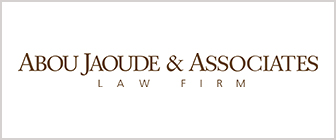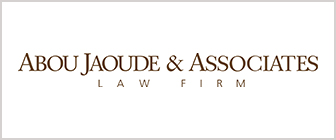Souraya Machnouk, Hachem El Housseini and Lama Frangieh of Abou Jaoude & Associates in Beirut look at the last 12 months in Lebanon
The World Bank indicated that the Lebanese banking sector, the most important pillar of the Lebanese economy, remained notably resilient despite the overall negative impact that the Syrian conflict has had on the Lebanese economy.
AML Regulations and Banking Secrecy
The Central Bank of Lebanon (BDL) continues to act as the watchdog of the Lebanese banking sector. The BDL’s governor urged the Lebanese parliament to enact two draft laws about cross border money flow and the exchange of tax information, in compliance with mandatory standards set by the Organisation for Economic Cooperation and Development (OECD).
In November 2013, the BDL officially indicated that it would not join the Inter-governmental Agreement on the compliance with the Foreign Account Tax Compliance Act (FATCA) and instead officially asked financial entities operating in Lebanon to take all necessary measures to ensure compliance with FATCA.
On July 1 2014, FATCA came into effect. According to the United States Department of the Treasury, 122 commercial banks, investment banks, insurance companies and financial institutions operating in Lebanon have registered with the US Internal Revenue Service.
Despite increasing international and domestic regulations aimed at combating money laundering, and FATCA’s entry into effect, banking secrecy remains a principle inherent to Lebanon’s history and financial system and plays a key role in attracting funds to the country. Banking secrecy in Lebanon is governed by the provisions of the 1956 Law. This law binds all financial entities regulated by the BDL to absolute secrecy with respect to their clients’ personal and account related information and provides that banking secrecy can only be lifted in very limited circumstances.
The BDL stated that compliance with FATCA would protect the Lebanese financial sector from reputational risks. The BDL also expressly affirmed that the implementation of FATCA would not compromise the banking secrecy law in Lebanon. However, the BDL continues to allay fears by examining all complaints about suspicious banking activities and lifting the banking secrecy whenever illegal operations are suspected.
The Special Investigation Commission (SIC) was established as an independent legal entity under the Anti-Money Laundering Law 318 of 2001 (the ‘AML Law’) to investigate suspected money-laundering offences, monitor compliance with the rules and procedures of the AML Law and decide to lift the banking secrecy.
The SIC will assist banks to overcome potential disclosure problems related to FATCA in the absence of a taxation treaty with the US, which is currently still subject of a draft law being discussed in parliament.
The SIC declared in a recent report that it has received 301 suspected cases in 2013, compared with 284 cases in 2012. Out of 301 suspected cases, a total of 189 cases (53.8%) were referred from local sources and 112 cases (30.9%) were referred from abroad. The SIC referred to judicial authorities a total of 137 suspected cases of money laundering compared with 116 in 2012, out of which 46 cases are still pending, while the remaining did not fall within the framework of the AML Law. As a result, authorities lifted the banking secrecy in 17 cases, down from 24 in 2012.
Forgery accounted for 14.5% of reported cases, followed by embezzlement of private funds with 7.9%, then by terrorism with 6.2%, embezzlement of public funds with 5%, organised crimes with 2.5%, and trade of narcotics with 2.1%. The other grounds, which did not fit in any of the aforementioned categories represented in total 61.8% of the reported cases.
Europe was the main source of requests to Lebanese authorities, with a total of 70 requests, equivalent to 53.8% of the total. Europe was followed by North America with 13.8% of the total.
The SIC also examined a number of institutions to ensure compliance with the AML Law, covering banks, auditors and money remitters.
Economic stimulus package
In 2013, the BDL announced a $1.47 billion stimulus package aimed to stimulate lending and support various productive sectors of the economy, the housing market, projects subsidized by Kafalat, renewable energy projects, and research and development ventures.
The plan had a great impact on the economy and allowed growth to reach between 1% and 1.5%, despite the various internal and external complications.
In June 2014, the BDL announced it was considering a new $800 million stimulus package to be allocated for 2014.
Electricity reform
In April 2014, the Lebanese parliament introduced amendments to Law 462, which regulates the electricity sector. The amendment allowed the government, during a limited time span of two years, to issue licenses to the private sector for the production of electricity.
These measures were long awaited, and public-private partnerships (PPP) continue to be considered as the substitute solution to privatisation for the power sector, with a pro-PPP policy at official level and a draft law being finalised.
Oil and gas sector
The momentum that followed the appointment of the board of directors of the Petroleum Sector Authority (PSA) in December 2012 for a six-year term seems to have cooled down. The Ministry of Energy and Water has extended to February 14 2015 the deadline for the pre-qualified firms to submit their offers for Lebanon’s first licensing round for offshore oil and gas exploration and production.
The decision constitutes the fifth extension. The origin of the delay lies in the lack of political consensus to ratify two decrees, the first establishing a model exploration and production sharing agreement and the second determining the number of and delineating the blocks that will to be awarded to successful bidders. It is feared that extended delays will erode confidence in the government’s ability to maintain the interest of international oil companies in the hydrocarbon offering and would affect Lebanon’s ability to protect its commercial interests in the prospected exploration and production agreements.
Foreign investment incentives
In addition to a solid financial sector, Lebanon is endowed with several investment-enabling strengths: a free market; a highly dollarized economy; absence of controls on the movement of capital and foreign exchange; a highly educated and multilingual workforce; investment incentives offered by the Investment Development Authority of Lebanon; and limited restrictions on foreign investment.
Lebanon’s corporate laws provide for different forms of corporate vehicles to accommodate the type and market of a business. The holding and offshore companies are investment-friendly structures exempt from income tax on profits and dividend distribution tax.
The significant extension of the purpose of offshore companies in 2008 has encouraged regional and international investors to conduct their business out of a Lebanese anchor. The flexibility offered to foreign investors by Lebanese offshore companies also stems from the exemption from share transfer tax and stamp duty, as well as the ability to have the entire capital held by foreigners and for all the board members to be non-Lebanese. Furthermore, a foreign non-resident chairman or general manager of an offshore company is exempt from the obligation to hold a work and a residency permit.
The ratification of a number of laws, including those aimed at modernising the corporations chapter of the Lebanese Code of Commerce, is hoped to significantly impact the country’s legal environment and confirm the role of Lebanon as a regional and international business platform; a great country to live, work and invest.
Partner
Abou Jaoude & Associates Law Firm
Beirut
About the author
Souraya is a partner at Abou Jaoude & Associates Law Firm and lends her specialised knowledge and experience to several practice groups including corporate law, banking and finance, mergers and acquisitions, and telecommunications.
Relying on an in-depth specialisation and a sharp understanding of the financial aspects of clients' businesses, she advises clients on cross-border transactions such as acquisitions, equity offerings and tax-advantaged investments. Souraya also renders strategic advice to major banks on all aspects of their operation, including the raising of capital, the participation in syndicated facilities, and the setup of corporate governance models.
She holds a JD with a double major in private and public law from the St. Joseph University, Beirut, a master degree (DEA) in Banking & Financial Markets Law from the St. Joseph University in partnership with the University of Paris II-Assas in Paris, and a joint master of laws degree (LLM) from Georgetown and George Washington Universities.
Souraya is recognised by the Legal 500 and Chambers & Partners as a leading practitioner in Lebanon. She is admitted to the Beirut Bar Association and the International Bar Association, and is fluent in Arabic, French and English.
Senior associate
Abou Jaoude & Associates Law Firm
Beirut
About the author
Hachem is a senior associate at Abou Jaoude & Associates Law Firm practicing in the areas of corporate and contractual law, banking, international trade and commerce, and oil and gas.
He regularly represents clients on the tax and regulatory aspects of inward investments. He has expertise advising banks on various types of domestic and international extensions of credit.
Hachem holds a JD in Private Law from the Lebanese University - Filière Francophone and an MBA from ESA / ESCP. He is a lecturer at the American University of Beirut.
He is admitted to the Beirut Bar Association and the International Bar Association and is an Associate Member of the Chartered Institute of Arbitrators, London. He is fluent in Arabic, French and English.



